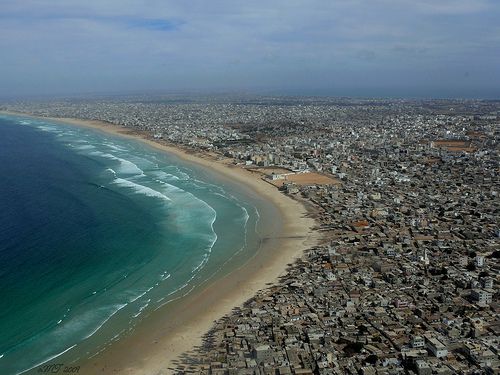World Bank urges African governments to implement low-carbon development
World Bank has warned that food production in Western Africa will be hit by more frequent heat waves and droughts and climate-resilient strategies are needed to the reduce the impacts of climate change

A new report released by the World Bank has warned that food production in Western Africa will be hit by more frequent and more extreme heat waves and droughts if the climate continues to alter at its current pace.
Also the Climate Action Network has called on African governments to implement low-carbon development and climate-resilient strategies in order to contribute to the reduction of the impacts of climate change on their populations.
The report, Turn Down the Heat - Climate Extremes, Regional Impacts and the Case for Resilience - took an in-depth look at what climate change means for sub-Saharan Africa. It compared the impacts on the region if warming continues at its current rate with impacts if governments successfully limit average global temperature rise to 20 Celsius.
It noted that while not removing the risk altogether, if temperature rise is kept under 20 Celsius, and comprehensive plans to adapt communities to climate change are put in place, many of the worst impacts can be avoided.
However, even at 20C, poverty reduction efforts and economic growth could potentially slump in the region as crop yields drop and water access problems are exacerbated, said the Coordinator of Climate Action Network West Africa (CAN-WA), Emmanuel Seck.
For example, the median yield of all crops is expected to be reduced by 11 per cent at 20C. This is expected to double to over 20 per cent if warming reaches 40C. Furthermore, the length of growing period would also drop by 20 per cent across the whole region.
"Africa needs support from the international community to adopt a low carbon approach to development that is compatible with meeting the human rights and needs of its growing population and consequently we remind developed countries to comply with their commitments in terms of mitigation and financing", Seck said.
Climate change of 2°C would lead to worse health for many people across sub-Saharan Africa. An increase in undernourishment, childhood stunting, malaria and other diseases could impact the ability of children to receive an education.
In the same vein, the National Coordinator of Climate Change Network Nigeria (CCN-Nigeria) and the Chair of the REDD+ Working Group of the CAN-WA, Mr. Surveyor Efik, echoed the concerns expressed by his sub-regional Leader, Seck from Senegal and also called for the same urgent interventions that the Coordinator pointed out.



